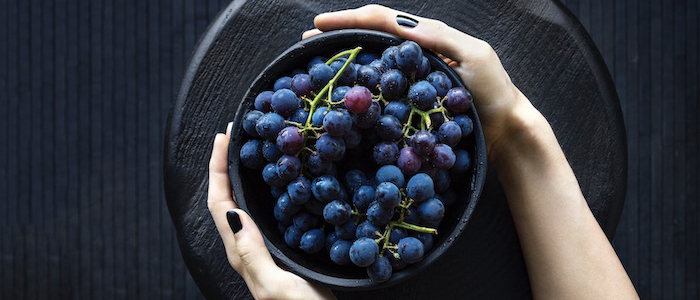Organic, organic, organic!
With organic food gaining popularity in shops and markets, have you ever wondered what the deal was? Here we reveal 10 benefits of buying organic produce.
Value for money
On average, organic fruit and vegetables are 10% more expensive than non-organic food. But, before you let this be the reason that you put the idea of organic food to the side, first, consider what you are getting for your money.
Organic foods contain on average 13% less water. In the western world, we have free access to water; so, by buying organic foods, you are gaining 3% more food substance for your money. And, because you are getting more actual food content, it fills you up more and you need to eat less.
Taste
There is a difference between the taste of organic and non-organic fruit and vegetables. If you have ever done a taste test, you will know what I mean. This alone is a reason why many people switch to using organic foods.
Nutrient content
Many studies have demonstrated the increased nutrient content of organic foods. There has been a lot of talk in the media recently about one study which showed a difference in the nutrition content of organic and non-organic foods. When looking at studies and research, it is important to look at all the research and make conclusions based on the bigger picture.
Yes, one study did show there was no difference but, what the media failed to report on is the many other studies that show organic foods have a significantly higher nutritional value, as a result of the farming methods used.
In organic farming, crops are rotated and not so intensively farmed, leaving the soils nutrient-rich. Non-organic farming methods deplete the soils and the farmers rely on extra fertilisers, which eventually changes the natural balance of nutrition.
Pesticides
Whoever thought that growing our foods along with poisons was a good idea?
Organic fruit and vegetables are grown and produced using only a select few of natural chemicals, which are allowed to be used on organic produce, as set out in the Plant Protection Regulations and the certifying organic bodies. Non-organic foods, however, are allowed far more chemicals and man-made chemicals, which are harder for your body to process and deal with, as well as having a detrimental effect on the environment.
Livestock farming
Livestock is a whole different game. Non-organic meat is usually intensively farmed and the living conditions usually present means that diseases are prevalent. Antibiotics are given as routine to livestock to prevent infection. This, however, leaves the meat provided with antibiotic residue. In a society that is quickly becoming antibiotic-resistant, I’m not sure that eating non-organic meat is such a good idea.
Non-organic livestock is usually fed fully on grains and processed foods, leaving the meat they provide us with omega-6 rather than omega-3. Organic and free-range livestock have access to grass (and insects for poultry). This means that the meat is higher in omega-3 than non-grass fed meats.
We also need to consider the welfare of the animals that we are eating. As a responsible human sharing the earth, it is our duty to care and offer consideration to the animals that we raise for food. Stressed animals produce a lot of stress hormones which is present in meat; while relaxed animals produce fewer stress hormones. Some organic-box-scheme companies have slaughtering methods which are designed to keep the animals relaxed and unaware of what is happening.
Health
There is something known as the health-chemical gap. This is where the nutrition content of our food has decreased, while the chemical content of our food and environment has gone up. When we consume chemicals in any form, our body uses up nutrition to process them. Our modern lives are so full of toxins and our bodies are struggling to cope, which is leading to biological stress and disease.
Environmental issues
There are so many environmental issues surrounding non-organic produce, such as environmental contamination with chemicals and the impact on the ecosystem and wildlife. One of the main concerns are the bees - some of the chemicals used are toxic to bees. Bees are more valuable to human existence than most people realise; bees fertilise our crops and provide the next generation of plant foods for us. It is estimated that if bees were to be wiped out, humans would also be wiped out within five years.
Social and economic issues
There are some social issues surrounding the production of non-organic foods. One example is that some banana plantations do not provide gloves to their workers. When the workers are washing the bananas, the water opens up the pores on the workers' hands, allowing chemicals to be easily absorbed and giving the workers chemical burns. If organic food sales rise, more farmers would be interested in organic methods, meaning their workers could enjoy a much better, safer environment.
Freshness
Organic food companies understand the importance of good quality food. In fact, some of the box-scheme companies are aiming to get the food from the field and to your door within 48 hours. That’s a lot fresher than standard supermarket veg!
Educating and inspiring young children
The benefits of having an organic vegetable box may reach further than you first thought. Boxes that are delivered to your door once a week offer young children the opportunity to get excited and learn about different fruits and vegetables. It’s like receiving a parcel once a week and, each week, letting your children open the box, touch, smell and even taste the foods delivered.
Buying and eating organic foods is one part of living a more environmentally conscious lifestyle. For more tips about how to eat ethically, find out more about eco-nutrition.

Find a nutritionist dealing with Healthy eating
All nutrition professionals are verified





